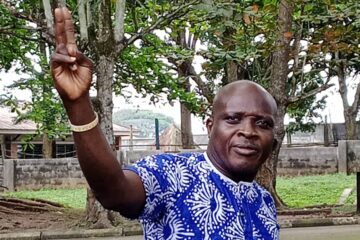The first time a major Twitter dispute between Nigerians and the African-American community was in 2018, when Cynthia Erivo, a Nigerian, was cast as African-American hero, Harriet Tubman. The outrage from the black community went as far as making a Change.org petition organized by Tyler Holmes, garnering over 1,000 signatures before the end of the year. even old tweets from the British actress of Nigerian descent showed her mocking a “ghetto American accent”, the main bone of contention like Holmes pointed out was the fact that Erivo wasn’t “an actual black American actress”, making her unqualified for the role. Nigerians on twitter immediately went into a Beyoncé-style formation around their Igbo sister, calling out African-Americans for their outright condescending comments, reminding them of all the times African-American actors ranging from Will Smith to Morgan Freedom, had gotten a pass to play famous African figures. One person went as far as accusing the African-American community of perpetuating the same bias they suffer at the hands of white oppressors. One pertinent question I ask myself is: are we as Nigerians – especially those based in the “motherland” – qualified to speak about race issues? Outside our different geographical locations, what makes us so different from one another?
In a 2019 article for The Philadelphia Inquirer, Valerie Russ explores this issue before concluding that, “Black immigrants are respected more than black Americans, all the while benefiting from reparations meant to right evils of America’s past. That’s led to some black Americans redefining themselves as “American Descendants of Slavery” to spotlight their claim on America’s promises. Meanwhile, immigrants discover they’re newly identified as “black” in a white nation — an unnecessary distinction in Nigeria, Ghana, or Jamaica — and say that when pulled over by cops, no one cares whether they have a charming accent.” A succinct explanation being the fact that immigrants and Africans don’t carry the same racial trauma associated with the African-American community. But does this mean we can’t talk about race?
Acclaimed writer and feminist, Chimamanda Ngozi-Adichie caught some flack at the tail end of 2019 for comments that seemed to insinuate that racism wasn’t something Nigerians living in Nigeria were accustomed to. However true her statement might have been, we would be naïve if we ignored situations in Nigeria which are seeped in white racial capitalism and colonialism.
Speaking to some Nigerians, it is clear that while the media has shone a light on the violent attack on black bodies in the land of the brave and free, there’s still a tendency to view people on “greener pastures” through rose-colored lenses. But why shouldn’t we? Growing up in Nigeria, we were bombarded with tales of how perfect life is in Obodoyinbo. Everything works there they say; constant electricity, a government that can be held accountable for its actions, a strict justice system that fights crime and the ultimate chance for a better life. How can we as Nigerians be concerned about black lives matter or feel sorry for blacks in the USA when we have our own issues to solve?. On the other hand, we have the African-American community and their condescending and discriminatory attitude towards Africans in Africa, and also in the apartment right next to them. Perpetuating stereotypes like their Caucasian counterparts, we’ve seen African-Americans refer to Africa as a country several times. Even the popular ABC show, Black-ish, had an episode where the lead character, Dre (played by Anthony Anderson), says, “Pass. Not black enough” when his son shows interest in befriending a Nigerian classmate. There have been several other situations on American TV featuring botched Nigerian accents, where the “motherland” and its people have been played up for jokes. We notice.
So do we get to talk about race? Yes. But to do so we need to educate ourselves as there is no linear narrative when it comes to history. We need to unlearn and also learn habits, focusing more on compassion and understanding without centering the conversation on ourselves. As aptly put by Eniola Anuolouwapo Soyemi in an article for The Republic, “Let us talk about race so that we can dismantle the falsities it seeks to set up as fundamental truths. Let us not talk about race in order to compare ‘bruises’, or to determine whose blackness is ‘darker’, more painful. That would be to give power to that from which we all seek to take it. If we are talking about race, this time let us do it only because we wish to put ourselves back at the forefront of our own narratives; as it was before.”



